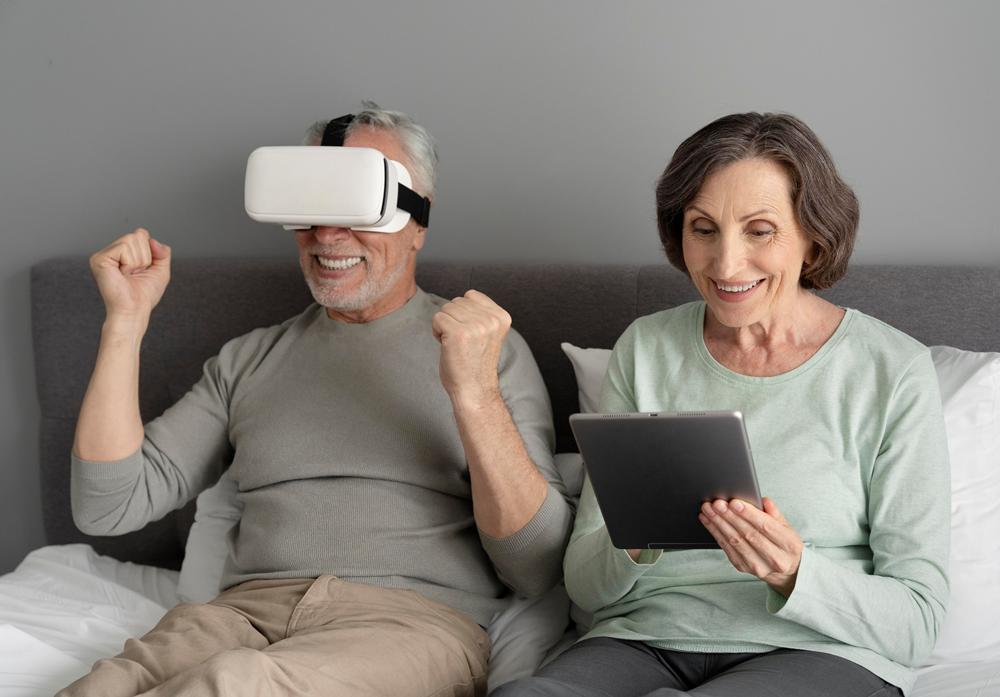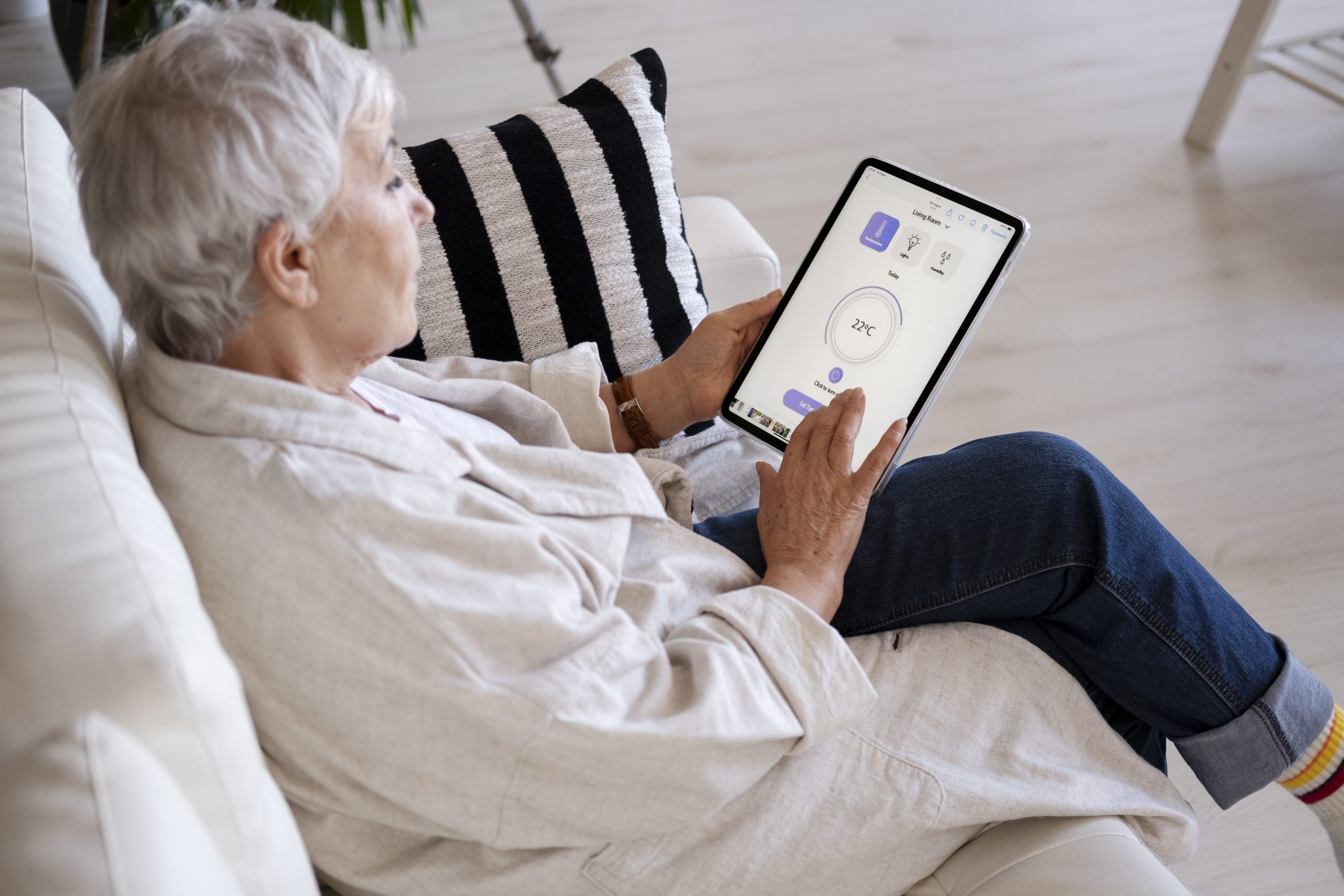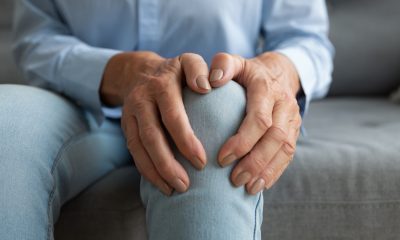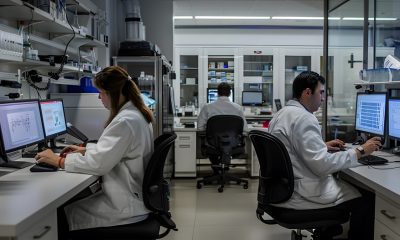Markets & Industry
Report finds growing interest in tech for ageing well at home

Older people in the US are increasingly interested in using technology to age well and independently in their current homes and communities, A new report has revealed.
The report found that 80 per cent of older Americans currently own at least one type of tech that enables ageing at home, and over half express a high likelihood of buying and adapting more of these emerging technologies.
“From smart wearable health monitors to hearing aids to digital security, there’s a huge interest among older Americans who want to integrate these technologies into their plans to age in their homes and communities,” said Patty David, AARP vice president of consumer insights at AARP, which conducted the report in conjunction with the Consumer Technology Association (CTA).
“The market is large and will grow as more and more Americans age into the 50-plus bracket. This is projected to be a US$120bn market by 2030.”
Seven out of ten adults age 50-plus (70 per cent) said they feel very comfortable using tech to help them age in their homes and communities. A significant number of older adults are considering buying additional tech to help them in their ageing journey.
The top potential tech products for older Americans are smart health devices, with more than half of older adults considering connected medical alert devices, digital hearing aids, and blood pressure and glucose monitors as AgeTech.
The report showed that price and reliability are the top barriers to purchase for many AgeTech products, with 60 per cent of participants saying that some form of cost was a barrier to purchase, and 41 per cent saying that their concerns about reliability are a barrier to purchase.
Further, 64 per cent of adults over 50 do not feel technology today is designed with their age in mind.
“This report confirms that seniors are ready to adopt technology that help them age-in-place,” said René Quashie, vice president of digital health at CTA.
“Our focus at CTA is making sure that developers make tools easy to use through thoughtful innovation, using our consumer research and industry standards.”
The new research provides insight into the priorities of older Americans when it comes to using and adopting technology to help them age. For some, there are large gaps in the adoption of technology and the number of people who are interested.
“There are some hesitancies in adoption, including price, ease of use, and data security,” David said.
“AARP and CTA are interested in overcoming some of these challenges to enable older Americans everywhere to live the way they want.”
News
Forus gains AI backing with 21 per cent stake

Eye-screening firm Forus Health has received a 21 per cent investment to scale its AI diagnostics across India and abroad.
Forus Health develops ophthalmic diagnostics — tools that detect eye disease — and “oculomics”, which uses eye images to flag wider risks such as diabetes or hypertension. Its devices have screened over 22 million people in more than 75 countries, and its AI-integrated platform has delivered comprehensive eye assessments to over five million patients.
The deal is a secondary transaction intended to support the scale-up of Forus Health’s AI eye-screening platforms and international deployment.
Inviga Healthcare Fund has acquired the 21 per cent stake, its second major investment after Mynvax in 2024, signalling support for India-built AI diagnostics in global markets.
Dr B. S. Ajaikumar, founder of Inviga Healthcare Fund and chair of HCG, said: “Forus Health embodies the Inviga ethos: clinically strong, technologically deep, socially impactful, growth oriented, profitable. This investment is a testament to our confidence in India’s ability to produce world-class healthcare innovations for domestic and international markets. We are delighted to partner with visionary founders like Chandrasekhar (KC) who combine deep insight with execution to make preventive, equitable healthcare a reality.”
K. Chandrasekhar, founder and chief executive of Forus Health, said: “We are thrilled to welcome Inviga as we enter the next phase of our growth. Their expertise in healthcare, operational experience, and insights from a clinician’s perspective are incredibly valuable. Together, we aim to enhance our AI and platform capabilities, utilise our proven ability to innovate in medical devices, and expand our reach both in India and globally. Our mission remains focused on eradicating preventable blindness.”
Rakshith Rangarajan, fund manager at Inviga Healthcare Fund, said: “Our collaboration with Forus is a strategic step intended to facilitate the expansion of a reputed med-tech franchise that is serving a significant market demand through a sustainable and economically sound business model. It reflects our commitment to advancing accessible solutions that address large, unsolved health challenges. The Make in India, Make for India and Make for the World ethos of Forus resonates deeply with our Fund. We’re confident this partnership will drive sustained growth and long-term value creation.”
The burden underscores the need for scalable tools: an estimated 270 million people in India live with visual impairment, much of it preventable; globally, 2.2bn people live with vision impairment or blindness, with over 1bn cases considered preventable or treatable. Forus Health’s 3nethra screening devices and wearable 3nethra specto — a smartphone-operated digital refractor for remote and tele-optometry — target earlier detection and easier access to care.
News
Rendever secures nearly US$4.5m to fight isolation

Virtual reality firm Rendever has secured nearly US$4.5m in grants to tackle social isolation among older adults through immersive technology.
The funding from the National Institutes of Health (NIH) includes US$3.8m for the Thrive At Home Program and an additional grant to build a caregiver support network in VR. These funds will enable Rendever to bring its technology to the large majority of individuals and caregivers who are ageing in place and lacking structural social support.
The investment continues Rendever’s work alongside the University of California, Santa Barbara, and adds new partnerships with the research organisation RAND and with Right at Home, a home care provider, to bring this technology into the home care market.
Together, they will run studies to test whether VR can build relationships across living environments, reducing social isolation, improving mental health and enhancing well-being across the ageing lifespan. At the same time, Rendever will study the impact of caregiving tools, including its Dementia & Empathy training programme.
“Our Phase II trial has shown the power of VR to effectively build and enhance family relationships across distances – even across country lines. The future of ageing depends on technology that effectively reshapes how we experience these core parts of the human experience as we get older,” said Kyle Rand, Rendever’s chief executive. “We know there’s nothing more holistically impactful than our social health. Over the next three years, we’ll work across the industry to build the next generation of community infrastructure that delivers real happiness and forges new relationships, all while driving meaningful health outcomes.”
Previous work in this NIH line of research has shown that family members experience a significant reduction in stress and depression after a four-week social intervention in Rendever. Recent results show that the positive effects of social VR interventions are increased for families navigating dementia and Alzheimer’s disease.
Alongside the funding announcement, Rendever is welcoming Sarah Thomas to its board of directors. Thomas is a global expert on ageing, serving as both a thought leader and a venture partner in the ageing technology industry. She has worked with major companies to launch products in new ageing markets and has helped develop membership models that the company says transform the senior living industry.
“I’m honoured to join Rendever’s Board at a pivotal moment for AgeTech adoption,” said Thomas. “Virtual reality is proving its power to combat isolation, improve mental and cognitive health, and elevate quality of life for older adults. I look forward to helping scale Rendever’s impact across senior living and into the home – advancing clinically-validated, engaging, and accessible VR experiences that enable older adults to live fuller, healthier, more connected lives.”
Rendever’s platform is used by senior living operators including Oakmont Management Group, Marquis Health and MBK Senior Living, and by healthcare systems such as UCHealth and Cleveland Clinic. The company has research funded by the NIH and NIA, and commercial partnerships with organisations including AARP and Verizon.
News
CareScout completes Seniorly acquisition

CareScout has completed its purchase of Seniorly, with the adviser network and partners to migrate to the CareScout platform in the coming months.
CareScout said the deal strengthens its direct-to-consumer capabilities and accelerates plans to help families understand, find and pay for long-term care — ongoing support with daily activities such as bathing, dressing and managing medicines.
Seniorly is a technology platform and adviser network that connects families with senior living communities and resources. The companies said the transition to a single platform will be phased in over the coming months.
The price was about US$15m. CareScout is a wholly owned subsidiary of Genworth, which said the purchase was funded from existing holding company cash.

 Independence1 month ago
Independence1 month agoNew US$6.5m centre targets healthy ageing

 Wellness2 weeks ago
Wellness2 weeks agoJust 3,000 steps a day may slow Alzheimer’s progression, study finds

 News2 months ago
News2 months agoSimple test can predict risk of severe liver disease

 News4 weeks ago
News4 weeks agoWeight loss drug reduces heart attack and stroke risk regardless of weight loss

 News7 days ago
News7 days agoDiabetes expert launches ‘world-first’ music-based health learning platform

 News1 month ago
News1 month agoWeight loss jabs could make cancer scans less effective, study suggests

 News3 weeks ago
News3 weeks agoRound up: US$25m fund to reimagine human longevity

 News2 months ago
News2 months agoExercise may lower dementia risk, study suggests







































